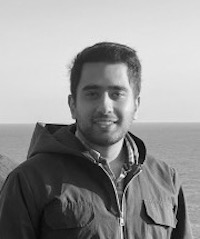

Mohammad Motallebi
PhD StudentPostgraduate Student UCC Energy Transition Offshore Renewable Energy
OVERVIEW
Mohammad Motallebi (born 1994, Tehran, Iran), is a researcher and engineer specializing in offshore renewable energy, marine structures, and hydrodynamics. With expertise in both academia and industry, his work bridges advanced numerical modeling, experimental validation, and large-scale infrastructure design. His research focuses on offshore wind energy systems, particularly floating platforms and dynamic submarine cables, aiming to enhance their reliability, efficiency, and contribution to sustainable energy development.
CURRENT ACTIVITIES
Mohammad is currently a PhD candidate at University College Cork (UCC), working within the MaREI Centre on the FlowDyn Project (2024–2027), supervised by Dr. Jimmy Murphy and funded by the Sustainable Energy Authority of Ireland (SEAI). The project investigates the hydrodynamic behaviour and reliability of dynamic umbilical submarine cables for floating offshore wind power systems.
His work involves:
- Conducting wave basin experiments, including instrumentation, scaling, and error benchmarking.
- Developing comprehensive benchmarks and analysis tools for cable performance.
- Advancing high-fidelity simulations (BEM, CFD, and coupled models) to ensure strong alignment between numerical and experimental results.
This research contributes to improving the design, monitoring, and operational resilience of next-generation floating offshore wind farms.
BACKGROUND
Mohammad holds an M.Sc. in Coastal, Ports, and Marine Structures Engineering from Amirkabir University of Technology (Tehran Polytechnic University), where he graduated with high distinction. His master’s focused on the hydrodynamic performance of floating wind turbine platforms, employing advanced numerical methods such as Boundary Element Method (BEM) and Computational Fluid Dynamics (CFD). This work contributed to a deeper understanding of fluid–structure interactions in offshore renewable energy systems.
Parallel to his academic journey, he gained significant industry experience as a project engineer, contributing to the design and construction of major energy and industrial complexes, jetties, harbor facilities, and large-scale infrastructure projects. These experiences equipped him with strong interdisciplinary skills, the ability to work across research and applied engineering, and the capability to tackle complex technical challenges in both academic and industrial environments.
With a strong foundation in fluid mechanics, structural engineering, and marine renewable energy, he is committed to driving innovation in offshore wind technologies and supporting the global transition toward sustainable energy.


